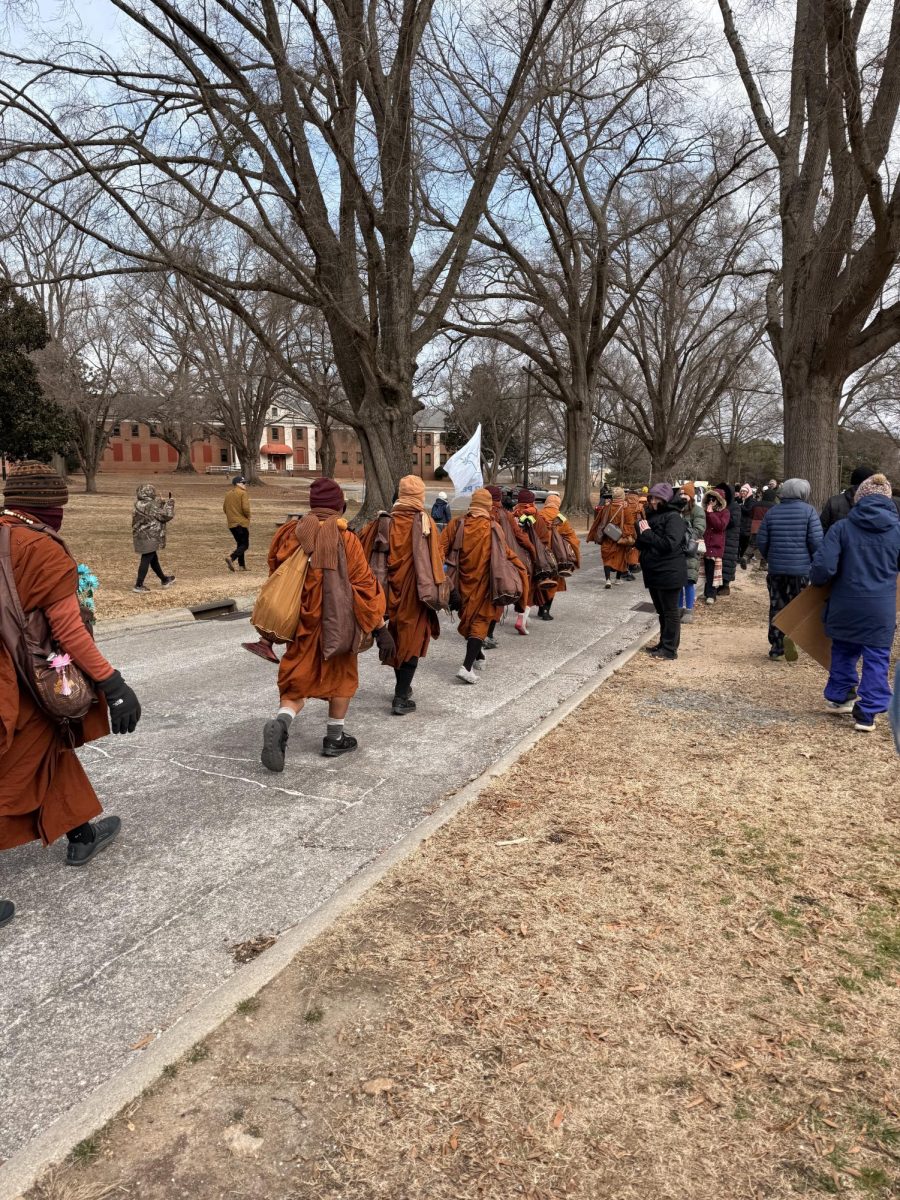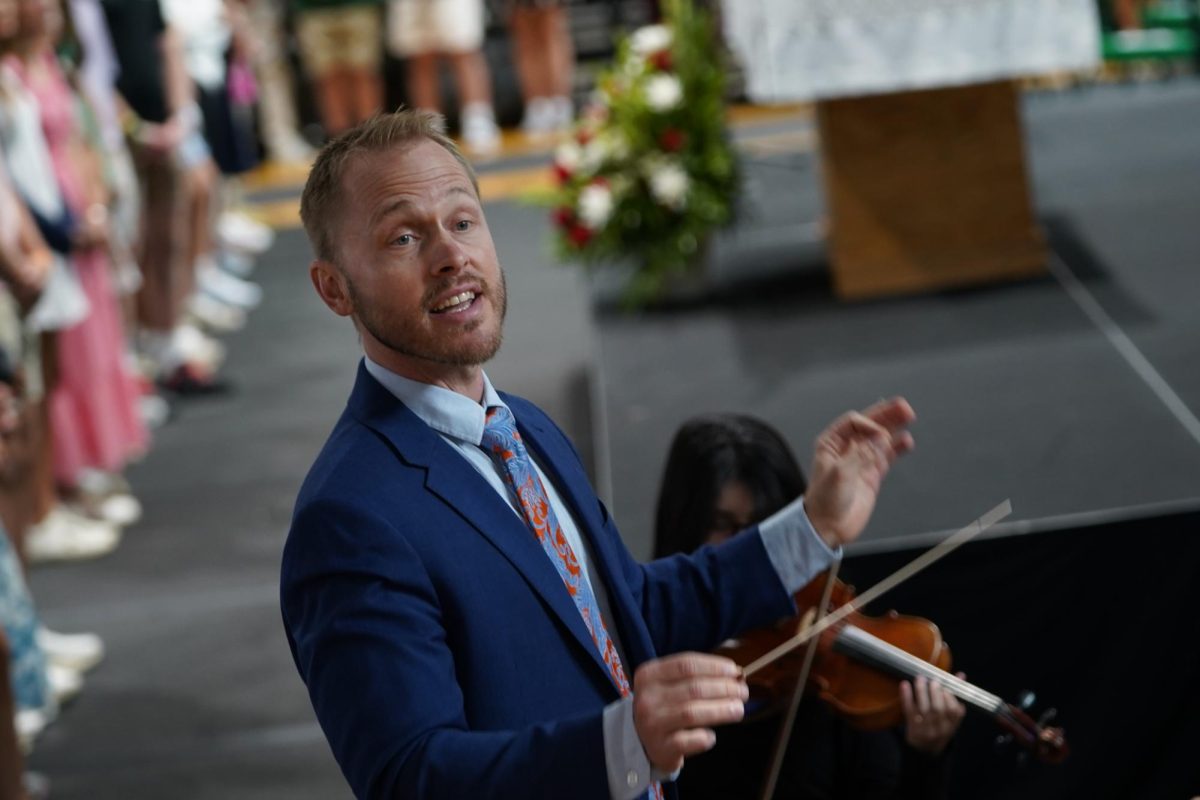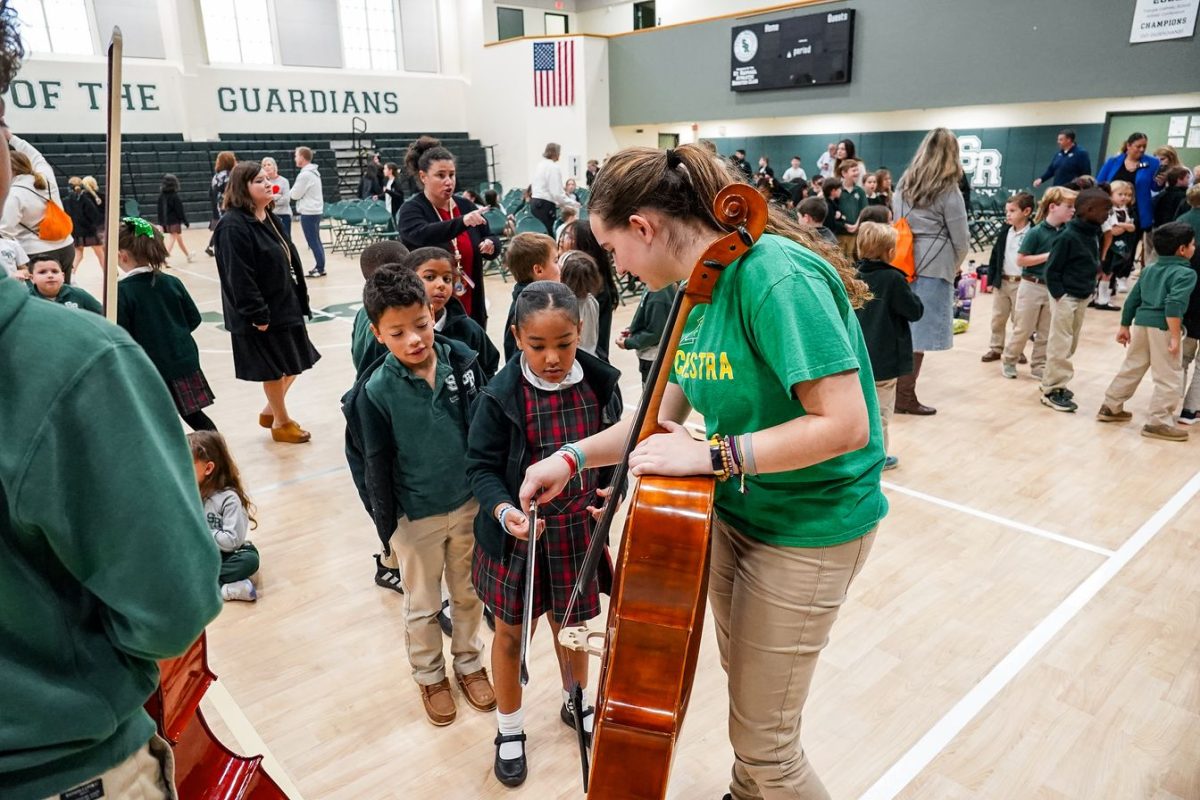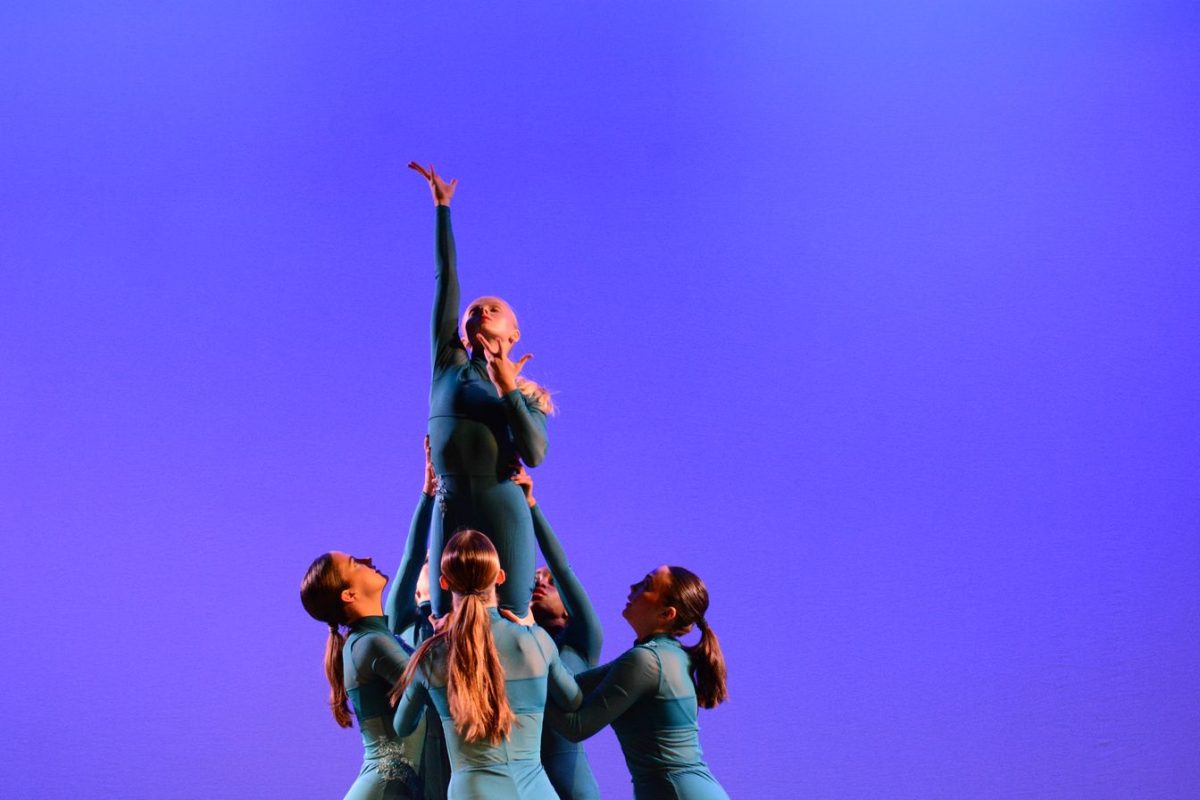There is so much that goes on during performances. People are cheering, performing, and talking to their friends. However, there is also something happening where we don’t see anything. People behind the scenes are also contributing to the emotions the audience is feeling during the show.
“[Tech Theatre’s role] is to enrich the experience of the audience even more to help everything run smoothly, and make sure that everything is safe for the actions,” said Lillian Nichols, who is a tech theater student. “I would separate it into two categories. There is what we do in my class, which is just building the sets and stuff, and there are the people behind the actual production and there’s a lot of roles in that. There’s management telling people where to go and organizing the actors, and then there’s more creative stuff like set design, costumes, lighting, and sound.”
There are many ways students get ready for the show.
“Whether it’s dressing for it or rehearsing lines, it’s normally chill behind the curtains,” said Adelyn Gleichauf, who is part of drama. “Some of us help rehearse lines, some of us paint props and backgrounds, some of us help with dressing, all for the visuals and quality.”
Gleichauf said it’s a team effort.
“Actors help actors to make sure we’re at our best. If the tech team is good, it will look appealing. If the actors are good, it will give a reaction. We want the audience to react, we want them to be on the edge of their seats and wanting more,” she said.
The work behind the scenes enhances the audience’s experience in her own way.
“I think, at least in my case, whenever I’m doing something together my first thought is always, ‘Is this safe? Is what I’m building capable of keeping someone out of harm?’ and obviously if that’s my priority then the actor that is standing on that thing or leaning against it or opening it – if it’s a door – their performance goes well,” Nichols said.
For rehearsals, the drama team usually runs through their scripts progressively trying to memorize their lines. When they begin to feel good about their lines, they try not to use them, and if all goes well then they’re happy.
If they don’t feel good about their lines yet, they practice without the scripts at home or with a partner, and during the show or rehearsal they use sound effects as cues for lines.
“To prepare for shows there is a tech week,” Elena Hall said. “This normally starts with a Tech Saturday which has about eight hours of working through scenes with technical elements. The rehearsals for the rest of the week are normally four to five hours long until the first show.”
Tech Theatre and what the other people in drama do are very important for the overall production of the performance.
“Obviously the actors can’t do everything on their own like they can’t be controlling the lights, sound, and curtains all at once while acting, so you need additional people to make that run well,” said Nichols. “There’s a lot more work that goes into it than you might think. … Sometimes the sets are really grand and you can tell a lot of effort went into it, but even the less showy ones, there is still a lot of effort that goes into them.”
“Work behind the scenes makes all of the difference in the performance,” Hall said. “Without a set there would just be actors on the stage. Without costumes the actors wouldn’t look like their characters. The behind the scenes people help to keep the audience in the show’s scene rather than in the real world.”









